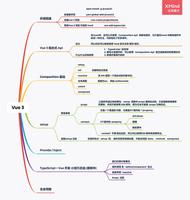怎么让jupyter计时[jupyter使用教程]

对于计时有两个十分有用的魔法命令:%%time 和 %timeit。如果你有些代码运行地十分缓慢,而你想确定是否问题出在这里,这两个命令将会非常方便。
1、%%time 将会给出cell的代码运行一次所花费的时间。
%%timeimport time
for _ in range(1000):
time.sleep(0.01)# sleep for 0.01 seconds
output:
CPU times: user 196 ms, sys: 21.4 ms, total: 217 ms
Wall time: 11.6 s
注:window 下好像只能显示 “Wall time”, Ubuntu16.4可以正常显示,其他系统未进行测试。
2、%time 将会给出当前行的代码运行一次所花费的时间。
import numpy%time numpy.random.normal(size=1000)
output:
Wall time: 1e+03 µs
3、%timeit 使用Python的timeit模块,它将会执行一个语句100,000次(默认情况下),然后给出运行最快3次的平均值。
import numpy%timeit numpy.random.normal(size=100)
output:
12.8 µs ± 1.25 µs per loop (mean ± std. dev. of 7 runs, 100000 loops each)
Python学习网,有大量免费的Jupyter使用教程,欢迎大家学习!
以上是 怎么让jupyter计时[jupyter使用教程] 的全部内容, 来源链接: utcz.com/z/526611.html









